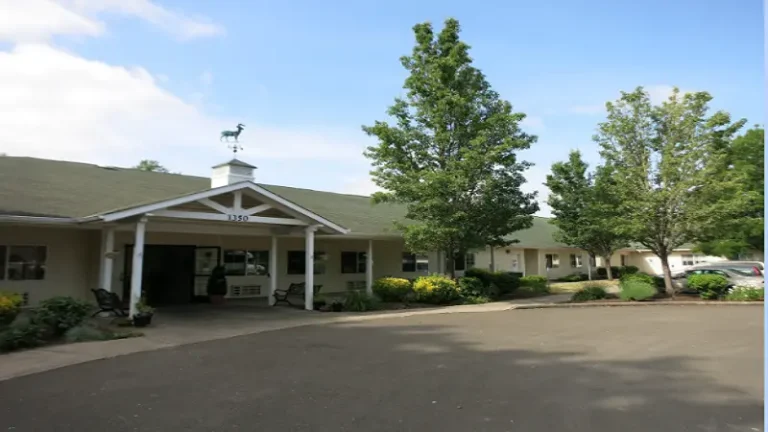Compassionate Approaches to Supporting Aging Parents Dealing with Memory Loss
As people age, they may face many challenges, with memory loss being one of the most poignant. This shift can evoke feelings of frustration and helplessness, not only for the individuals experiencing cognitive decline but also for their families. Supporting aging parents through this phase requires empathy, understanding, and practical strategies.
In this article, we will explore compassionate approaches to support aging parents dealing with memory loss, offering insights and strategies to enhance their well-being.
Understanding Memory Loss
According to Statista, 17.3% of the American population was above 65 years in 2022. It is expected to increase 22% by 2050. With increasing age comes age-related problems, especially memory loss.
Age-related memory loss is often natural, but it can also be an early sign of conditions like Dementia or Alzheimer’s disease. Beyond aging, memory loss can be caused by factors such as head injuries, certain medications, excessive alcohol consumption, or mental health disorders like depression.
The science behind memory loss involves changes in brain structures, particularly in areas like the hippocampus, which is responsible for forming new memories. As brain cells become damaged or die, the connections between neurons weaken, making it harder to store and retrieve information. While age can increase the likelihood of memory loss, it can occur at any stage of life due to various medical or environmental factors.
Creating a Supportive Environment
Creating a supportive environment for aging parents dealing with Dementia is essential for their emotional and mental well-being.
The World Health Organization reported that dementia is the 7th leading ground of death globally. It is one of the major reasons for disability and dependence among older people. Alzheimer’s disease is the most prevalent form of Dementia and accounts for 60–70% of cases.
A calm, organized space can help reduce confusion and anxiety, making daily tasks easier to manage. Simple adjustments like labeling household items, establishing routines, and minimizing clutter can make a significant difference.
It’s also important to maintain open communication and show patience and empathy when challenges arise. Involving your loved ones in decisions, even small ones, fosters a sense of control and dignity. By prioritizing safety, comfort, and understanding, you can create a nurturing environment that promotes their quality of life.
Building a Care Plan
According to Morning Star, 70% of adults turning 65 will require serious long-term care in their lifetime. Building an effective care plan for aging parents with memory loss starts with assessing their individual needs, including medical, emotional, and daily living requirements.
Involving healthcare professionals, such as doctors or specialists, helps to ensure the plan addresses medical treatments, medications, and therapy. Establishing a clear routine is key to reducing confusion and promoting stability.
Family members and caregivers should coordinate responsibilities, ensuring a balanced and consistent support system. Incorporating social activities and cognitive exercises also aids in maintaining mental health. Regularly reviewing and adjusting the plan as their condition evolves ensures the care remains relevant and responsive.
Seeking Professional Help
Seeking professional help can be crucial when caring for aging parents with memory loss. Professionals, such as senior care managers and memory care specialists, offer expertise in developing personalized care plans, managing medications, and providing cognitive therapies.
According to Spring Arbor University, healthcare providers, particularly those specializing in memory care, play a key role in monitoring the conditions of dementia patients. For instance, a Doctor of Nursing Practice specializing in memory care can address medical needs better and offer emotional support to families.
Online doctoral nursing programs are particularly valuable, equipping nurses with advanced skills and knowledge in gerontology and memory care. These programs provide healthcare professionals with the expertise to improve care outcomes, manage complex conditions, and offer compassionate support.
Maintaining Family Connections
Maintaining family connections is essential when supporting aging parents with memory loss, as these relationships provide emotional stability and a sense of belonging. Regular family interactions, whether through visits, phone calls, or video chats, can help keep aging parents socially engaged and mentally stimulated.
Small gestures like involving them in family traditions or activities, even in simple ways, reinforce their role in the family and boost their self-esteem.
According to the Pew Research Center, 54% of Americans aged around 40 are sandwiched between their old parents and their kids. This is why they are being referred to as the “Sandwich Generation”. It is a difficult job to maintain a balance between the two, but they are committed to both, especially looking after their aged parents.
It’s also important for family members to communicate openly and share caregiving responsibilities, ensuring that the burden doesn’t fall on one person alone. Strong family connections create a support network that enriches the caregiving experience for everyone involved.
FAQs
What are the early signs of memory loss in aging parents?
Early signs of memory loss in aging parents may include forgetting recent events or conversations, frequently misplacing items, and struggling to follow familiar routines. Other signs include difficulty finding the right words, repeating questions, and showing increased confusion or disorientation in familiar environments.
When must I consider proficient assistance for my aged parents?
You should consider professional help for them when memory loss begins to interfere with their daily functioning, like managing medications, personal care, or safety. If you notice signs of confusion, disorientation, or increased difficulty, consulting a healthcare professional can help ensure they receive appropriate care and support.
What types of activities can help engage my parents with memory issues?
Engaging activities for a parent with memory issues include puzzles, memory games, and simple crafts, which help stimulate cognitive function. Physical activities like walking or gardening, listening to music, or looking through family photo albums can also provide mental engagement and emotional comfort.
Embracing Compassion and Support
Caring for aging parents with memory loss requires patience, empathy, and a well-rounded approach. Creating a supportive environment, developing an effective care plan, seeking professional help, and nurturing strong family connections can enhance their quality of life. Prioritizing their dignity and well-being ensures they feel valued and loved throughout their journey.






